Preparing for the Inevitable: Raising Assessments and How to Do It
Whether it’s to pay for repairs to the common area, replenish reserve funds, pay for increased utilities, stay even with inflation, raise funds for a new project addition such as a playground or pool (also known as capital improvement), or even help pay for litigation, there will come a time when a homeowners association will need to raise its assessments. This article explains why, how, and when to raise assessments, and how to best communicate it to the membership. When you go through this process keep in mind everyone knows that the cost for a gallon of milk has gone up along with a gallon of gas, so increases in assessments should not be a surprise. Our association boards shouldn’t have to approach the news of assessments increases with shame or threats of retribution, the truth is it is just a “sign of the times.”
First, it’s important to know how assessments work. An association’s annual or “regular” assessments should total the amount of expected expenses for the year which are collected from the membership. These regular assessments are deposited in the operating account and some of the funds may be saved in a reserve account for designated line items as identified in the association’s annual budget. As the association incurs expenses, the operating funds are used to pay for such expenses. If the association has reserve funds set aside for, as an example, major repair items, such as a pool or a roof, then the association can use those reserve funds as that is what the reserve funds are intended for. But when there are additional ongoing operating expenses that arise in which the operating account is insufficient and in which reserve funds can’t be used for that purpose*, the association will have to raise its regular assessments or may need to levy a special assessment based on urgency and need. (Note*: Associations do have the ability to borrow from reserve funds for ongoing operating expenses but are required to pay back the borrowed reserve funds which typically result in raising assessments.). Below is a summary of the methods of raising assessments.
 HOA Law Blog
HOA Law Blog



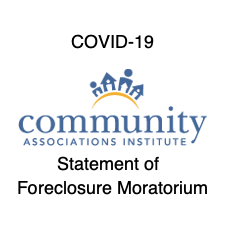 Earlier this month, CAI released a
Earlier this month, CAI released a 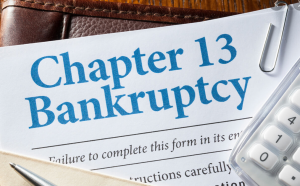 As many of you likely know, when a homeowner files a Chapter 7 bankruptcy, they may be able to “discharge” their obligation to pay the pre-bankruptcy petition debts including the assessments they owe their community association. And you likely know that when an owner files a Chapter 13 bankruptcy, they are looking for a way to reorganize and not discharge their debts. And we all understood, or at least thought we understood that the assessments that became due after the owner filed bankruptcy, the post-petition assessments, would not be discharged.
As many of you likely know, when a homeowner files a Chapter 7 bankruptcy, they may be able to “discharge” their obligation to pay the pre-bankruptcy petition debts including the assessments they owe their community association. And you likely know that when an owner files a Chapter 13 bankruptcy, they are looking for a way to reorganize and not discharge their debts. And we all understood, or at least thought we understood that the assessments that became due after the owner filed bankruptcy, the post-petition assessments, would not be discharged.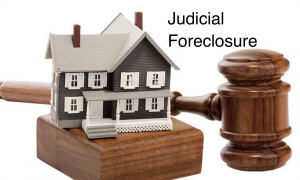 By Brian Moreno, Senior Associate at SwedelsonGottlieb, Community Association Attorneys
By Brian Moreno, Senior Associate at SwedelsonGottlieb, Community Association Attorneys I was alerted to a
I was alerted to a 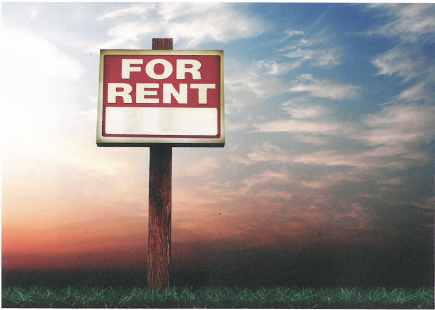 Many California condominium and homeowner associations end up with units and homes after foreclosing on assessment liens with no third-party bidders at the foreclosure sales. With increased equity, we are seeing more third-party bidders at sales. But that still leaves a lot of associations in the position of being landlords. And many boards do not know the first thing about being a landlord.
Many California condominium and homeowner associations end up with units and homes after foreclosing on assessment liens with no third-party bidders at the foreclosure sales. With increased equity, we are seeing more third-party bidders at sales. But that still leaves a lot of associations in the position of being landlords. And many boards do not know the first thing about being a landlord. The Nevada Supreme Court recently ruled that a super priority lien held by a Nevada homeowners association can extinguish a first deed of trust on a property. The Court stated: “With limited exceptions, this lien is ‘prior to all – other liens and encumbrances’ on the homeowner’s property, even a first deed of trust recorded before the dues became delinquent”
The Nevada Supreme Court recently ruled that a super priority lien held by a Nevada homeowners association can extinguish a first deed of trust on a property. The Court stated: “With limited exceptions, this lien is ‘prior to all – other liens and encumbrances’ on the homeowner’s property, even a first deed of trust recorded before the dues became delinquent”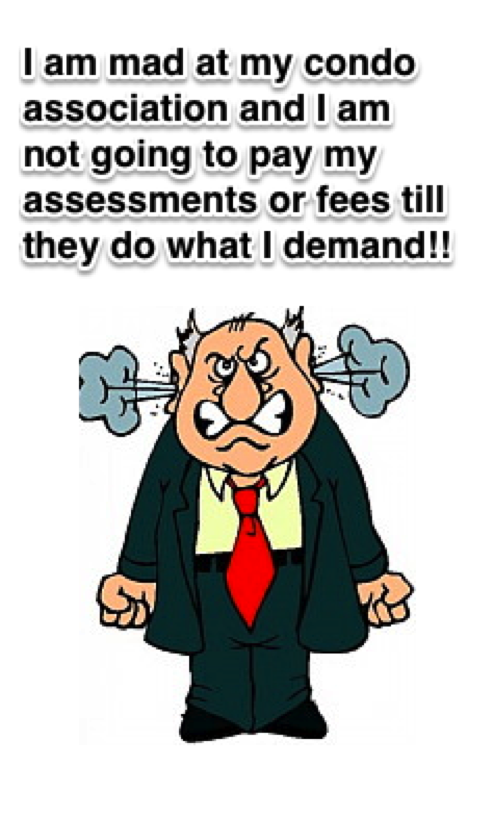 I recently read a newspaper article about Justin Bieber and the problems he is allegedly creating for his homeowners association in Calabasas, California. Homeowners are apparently unhappy that he is racing his Ferrari around the association’s streets, and they threatened to withhold payment of their assessments unless and until their board did something about the situation. That would be a mistake for those owners or any owner who has a dispute with their association, because they simply do not have the right to withhold payment of their assessments as leverage to get their association to do what they want.
I recently read a newspaper article about Justin Bieber and the problems he is allegedly creating for his homeowners association in Calabasas, California. Homeowners are apparently unhappy that he is racing his Ferrari around the association’s streets, and they threatened to withhold payment of their assessments unless and until their board did something about the situation. That would be a mistake for those owners or any owner who has a dispute with their association, because they simply do not have the right to withhold payment of their assessments as leverage to get their association to do what they want. At some point, just about every community association will have a delinquent owner who files for bankruptcy. And while a bankruptcy filing is often interpreted as meaning that the debt has become uncollectable, it does not necessarily mean the end of the road for creditors, especially homeowners associations. There are special provisions for homeowners associations in the Bankruptcy Code that may help an association, assuming the association has recorded a lien, and collection of the delinquent assessments may still be possible. Having an attorney who is familiar with bankruptcy law involved at the outset of the case can drastically improve an association’s chances of recovering the money it is owed. Some bankruptcies are quick and easy. Some are not. Some start out looking like they will be quick and easy, and then things change. This article is about the ones that change when a delinquent homeowner’s bankruptcy is converted from one type of bankruptcy to another.
At some point, just about every community association will have a delinquent owner who files for bankruptcy. And while a bankruptcy filing is often interpreted as meaning that the debt has become uncollectable, it does not necessarily mean the end of the road for creditors, especially homeowners associations. There are special provisions for homeowners associations in the Bankruptcy Code that may help an association, assuming the association has recorded a lien, and collection of the delinquent assessments may still be possible. Having an attorney who is familiar with bankruptcy law involved at the outset of the case can drastically improve an association’s chances of recovering the money it is owed. Some bankruptcies are quick and easy. Some are not. Some start out looking like they will be quick and easy, and then things change. This article is about the ones that change when a delinquent homeowner’s bankruptcy is converted from one type of bankruptcy to another.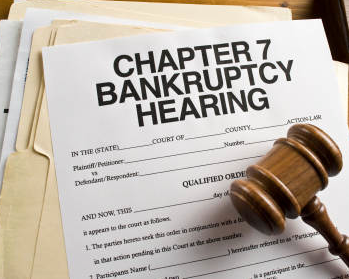 As you likely know, there are different types of bankruptcies that an individual can file. Typically, we see delinquent owners file either a Chapter 13 bankruptcy seeking to readjust their debts, or a Chapter 7 bankruptcy where the owner is seeking to liquidate their assets and eliminate their unsecured debts. This article will deal exclusively with Chapter 7 bankruptcies.
As you likely know, there are different types of bankruptcies that an individual can file. Typically, we see delinquent owners file either a Chapter 13 bankruptcy seeking to readjust their debts, or a Chapter 7 bankruptcy where the owner is seeking to liquidate their assets and eliminate their unsecured debts. This article will deal exclusively with Chapter 7 bankruptcies.